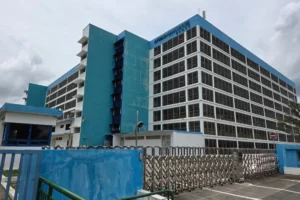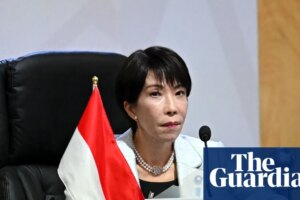
Proponents say they want to use extra money to improve quality of life for foreign residents, strengthen programs to find and deport illegal residents.
Recently, the Japanese government indicated that it will likely be raising departure taxes by a considerable amount, requiring international travelers to pay more when flying out of Japan. Now it looks like it’s going to cost more to remain in the country too for Japan’s foreign residents.
Currently, the Japanese government’s Immigration Services Agency charges a fee of 6,000 yen (US$40) when foreigners living in the country apply to renew or change the classification of their residency visa (such as changing from a student visa to a work visa, or a work visa to a spousal visa). This price was instituted in April of this year, and is already a 2,000-yen increase over the previous fee. However, Japanese politicians are already indicating a desire to raise the fee again, and this time by a much more dramatic degree.
Multiple media outlets, citing unnamed sources related to the proposal, say that the intent would be to raise visa renewal fees to somewhere in the range of 30,000 to 40,000 yen, five times or more than the current price. With some foreign residents of Japan only granted one-year visas, they would have to pay this fee on an annual basis in order to remain in the country. The planned increase would be even larger for foreigners living in Japan who are applying for permanent residency status, which currently carries a 10,000-yen application fee and would, under the plan, be raised to 100,000 yen, 10 times the current price.
▼ The price of a permanent residency application should the idea go through.
Note also that these are the fees that must be paid specifically to file applications. There’s no guarantee that the visa or permanent residency status will be granted, meaning that foreign residents could wind up paying as much as 100,000 yen only to be told “Sorry, but no” and having to eat the financial loss. Also worth considering is that visa status is granted on an individual basis, so in the case of foreign resident couples or families, each member of the household will be charged the application fees.
As to why some Japanese politicians want higher fees, some have said it’s a response to inflation, but the idea that the costs the Immigration Services Agency incurs in processing a visa application have risen by 400 percent is laughable, so this is clearly a move to substantially boost government revenue by draining it from foreign residents. To be fair, Japan’s current visa renewal fees are much lower than the onces charged by many other countries, Converted to yen, the cost of renewing a work visa is roughly 16,000 yen in Germany, 70,000 yen in the U.S., and 169,000 yen in the U.K., and some of the Japanese politicians pushing for higher fees say they want Japan’s to be more in line with the amounts charged in Western countries. However, a justification of “We’re only gouging you because other countries gouge their foreign residents” is likely to be of little comfort to foreign residents in Japan if they end up having to pay the higher prices.
As for what it would do with all that extra cash, some proponents of the fee increases have said they want to use it to improve the quality of life of foreign residents in Japan, using it to speed up the visa processing process or improve Japanese-as-a-second-language educational opportunities. Other, though, have said that they would put the extra money taken from visa and permanent residency applicants to strengthen immigration control programs for identifying and deporting illegal immigrants in Japan, apparently unbothered by the irony of making Japan’s nearly four million legal foreign residents foot the bill for dealing with the estimated 70,000 who are skirting the rules, despite the latter group, by definition, not having visas and who thus wouldn’t be paying the higher renewal fees.
However, Japan’s current immigration laws set a maximum amount of 10,000 yen for visa renewal and permanent residency application processing fees. As such, raising the prices beyond that would require amending the law, which is expected to be what proponents will be formally proposing in the Diet when the new fiscal year begins in the spring.
Source: Yomiuri Shimbun, Nihon Keizai Shimbun
Top image: Pakutaso
Insert image: Pakutaso
● Want to hear about SoraNews24’s latest articles as soon as they’re published? Follow us on Facebook and Twitter!
Like this:
Like Loading…





